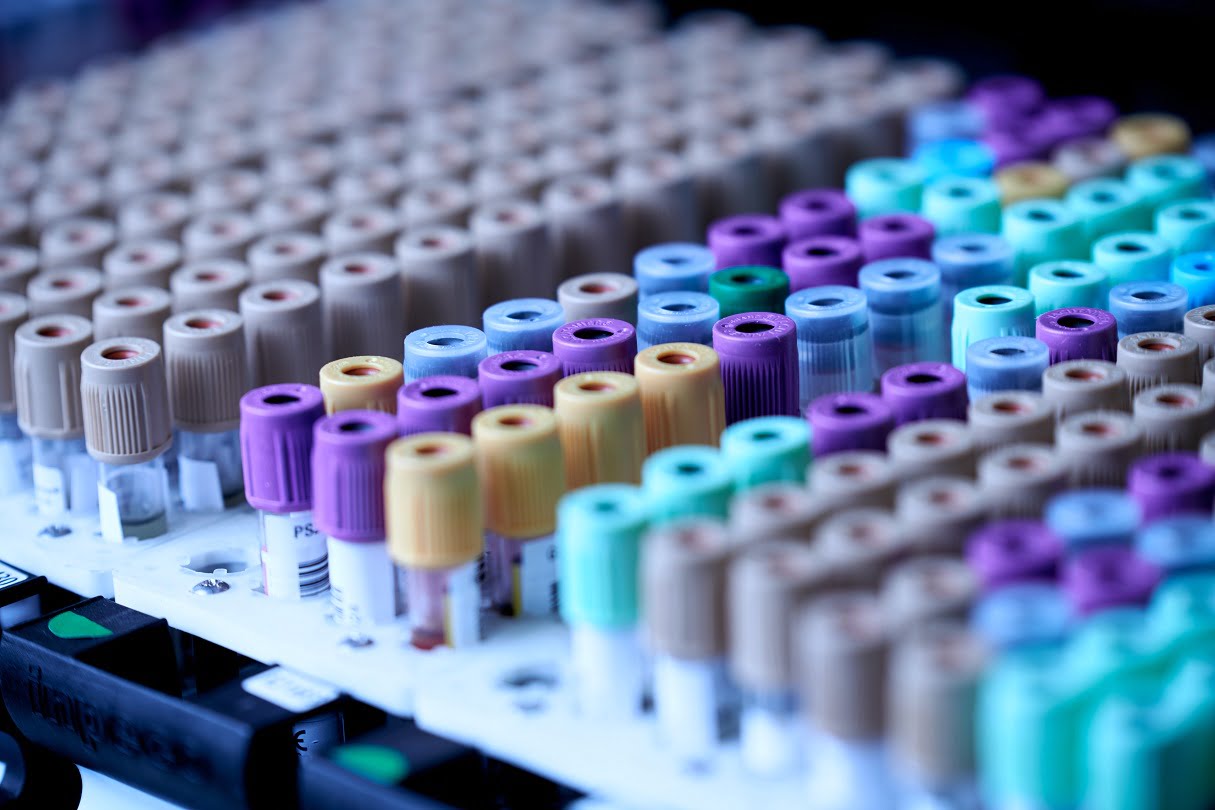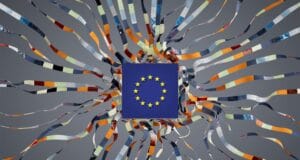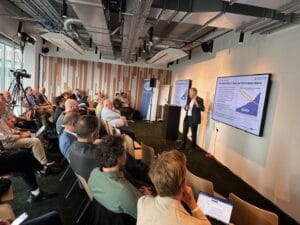In our ‘data sharing in practice’ series, we talk to professionals who are actively involved in data sharing. What is their perception of the value of sharing data, what initiatives did they start or participate in to realise value creation, and what are the challenges they have faced along the way?
Every year, the number of people in the Netherlands diagnosed with cancer grows. In 2022 alone, there were 124,000 new cancer patients. The impact of cancer is huge on many levels: for patients and loved ones but also for society. The mission of our participant Netherlands Comprehensive Cancer Organisation (Integraal Kankercentrum Nederland, IKNL), an independent quality institute for oncological and palliative research and practice, is to reduce the impact of cancer. To achieve this, it collects data and makes it available for research and statistics. We spoke with data scientists Gijs Geleijnse and Eva Mezei from IKNL to learn how IKNL tries to encourage sharing data related to cancer and about the data sharing challenges it faces.
Registration of patient data in the NCR
For over 30 years, IKNL has been tracking the diagnosis and care of patients with cancer in the Netherlands through the Netherlands Cancer Registry (NCR), a database in which every patient with cancer is registered. Data are available on national level from 1989 onwards. Gijs: “At the moment, the database grows with 124,000 patients annually. And we expect this number to increase, because the aging population and lifestyle factors such as sunbathing and smoking.” To obtain this data and create an accurate picture of the national cancer population, IKNL collaborates with all hospitals in the Netherlands. Gijs: “Cancer patients often have to visit multiple institutions, especially when their disease is difficult to treat. From a nearby hospital, they are referred to a larger hospital in the region or even to an academic hospital. And for special treatments such as radiotherapy, they may need to go to a separate institution. With every hospital that the patient visits, IKNL has registration employees who ensure that relevant data from the patient’s record is collected with IKNL’s registration application. This allows us to follow patients throughout their care process. The attending doctor informs the patient that their data will be shared for the purpose of research. If a patient doesn’t want that, they can opt out. Fortunately, patients generally understand the importance of contributing data for research and statistics. This ensures that our data is as complete and representative as possible.”
Turning cancer data into new insights
IKNL manages and collects this patient data solely for the purpose of research and statistics. Gijs: “Anyone can view generic figures on the IKNL website. For example, figures on the number of people diagnosed with a certain type of cancer. IKNL also recently launched the ‘Cancer Atlas’, which allows people to see whether certain types of cancer are more or less common in their area of living compared to other places. Furthermore, we provide the website kanker.nl with statistics from the NCR, specially aimed at patients. About 600 to 700 times a year, hospitals, researchers and policy makers also call on IKNL to share specific data to conduct cancer research or for policymaking. For example, at the request of the Netherlands Healthcare Institute, we used our data to provide insight into the capacity that people with lung cancer need to undergo proton therapy.”
Privacy-enhancing technologies as a solution to legal challenges
Data sharing always comes with challenges. Not only technological, but also legal ones. And the latter prevail, according to Gijs. “Oftentimes, it is technically quite possible to connect databases, but it is unclear under which legal conditions one may use data for which purposes. This generates a lot of discussion among lawyers. Because IKNL works with sensitive patient data, it is already bound by strict GDPR (General Data Protection Regulation) rules. “For example, we are not allowed to process citizen service numbers.” Gijs explains. “However, we do collect patient name and patient number to be able to trace patients in other sources to combine data.” This data is not shared with researchers, because IKNL operates according to the data minimisation principle. Gijs: “After each approved application, we only share the data the researcher needs to test his or her hypothesis. To ensure that sensitive patient data cannot be retrieved, we are increasingly using privacy-enhancing technologies. For example, we collaborated with TNO, Linksight and Roseman Labs, among others, in pilots in the field of federated learning and Multi-Party Computation. However, the challenge is to scale up these pilots so that they are also suitable for regular use. This should be the goal of every pilot. At IKNL, we want to do more than just running pilots. We’d like to put these into practice as well.”
European-level laws and regulations are necessary
IKNL is also working with parties at a European level to promote data sharing for secondary use. “The EU-funded project I’m involved in is called IDEA4RC,” says Eva. “In this project, we are setting up an ecosystem for sharing data on very rare cancers. Obviously, there is very little information available about these cancers. This makes it all the more important to share all available data on a European level. In addition, we use federated learning in this project to share this data in the most secure way possible.”
Cooperation in Europe is complicated, according to Gijs. “That has to do with the different interpretations of the GDPR. For example, in Scandinavian countries it is allowed to connect health data sources via a citizen service number (in Dutch: BSN). This provides enormously valuable insights but unfortunately, this data is not always allowed to be shared beyond the country’s borders. Whereas Scandinavian countries do not need to work on a consent basis in the project, the opposite is true in Italy. Here, a patient must give separate consent for each study for which his or her data is used. Harmonisation of the interpretation of GDPR in Europe is important to set equal rules around data collection and usage for research and innovation.”
According to Gijs, it is crucial that data sharing for secondary use is further standardised. “I hope that the Electronic Data Exchange in Healthcare Act (Wegiz) is going to be a stimulus at national level. Furthermore, the European Health Data Space is developing good laws and regulations that ultimately determine what needs to happen in Europe, and thus also in the Netherlands regarding data delivery and data linking.”
Scaling up data-sharing projects through public-private partnership
IKNL is confident that the broad community of the CoE-DSC can help further scale up data sharing projects. Gijs: “To keep cancer care accessible and of the highest quality, it is important that relevant patient data is made accessible as much as possible. We believe that for innovation in healthcare, you always need collaboration between public and private parties. For instance, within the HERACLES project, which involves various parties from hospitals to high tech companies, we are working on an innovative, privacy-friendly infrastructure and agreement framework to enable the sharing of patient data. We are also applying privacy-enhancing technologies in this project. To further scale this project, we would like to leverage the expertise available within the CoE-DSC community on data sharing best-practices. So let this be a call for parties to join.”




